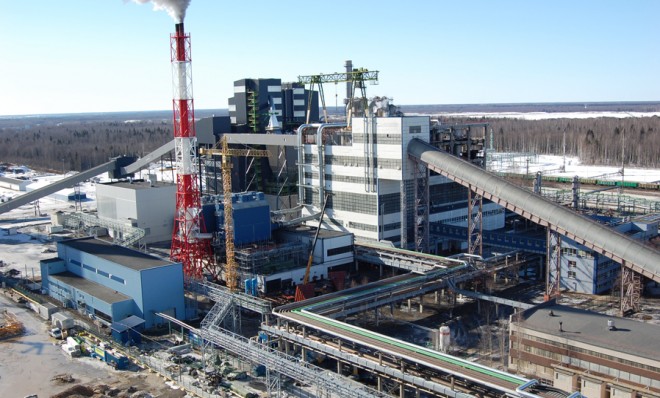Could Estonia lead a shale oil boom?
90 percent of the tiny eastern European country's citizens get their energy from shale oil. And they're ready to export their expertise.

A free daily email with the biggest news stories of the day – and the best features from TheWeek.com
You are now subscribed
Your newsletter sign-up was successful
Estonia— home of the founders of Skype and the (fake) birthplace of Encino Man— hopes to emerge as an industry leader in the production of shale oil.
Shale oil comes from, well, oil shale — a soft brown sedimentary rock rich in the organic chemical compound blend kerogen. When heated, kerogen can produce oil similar to crude, and can be processed into jet fuel, diesel, gasoline, and heating oil. These products may burn cleaner than those from crude oil — even cleaner than super diesel (ultra low sulfur diesel), though environmentalists worry about mining and processing hazards.
Estonia doesn't have a ton of oil shale — only about 17 percent of the E.U.'s supply. But it hopes experience will go a long way. Its 1.3 million citizens draw about 90 percent of their energy from shale oil — and have been for the better part of a century, says the Associated Press. As experts of mining, transporting, crushing, and burning the stuff, Estonian energy companies such as state-owned Eesti Energia hope to perfect the technology and start exporting it to countries like Jordan (home to an estimated 34 billion barrels of shale oil) and the U.S. (home to 70 percent of the world's supply).
The Week
Escape your echo chamber. Get the facts behind the news, plus analysis from multiple perspectives.

Sign up for The Week's Free Newsletters
From our morning news briefing to a weekly Good News Newsletter, get the best of The Week delivered directly to your inbox.
From our morning news briefing to a weekly Good News Newsletter, get the best of The Week delivered directly to your inbox.
To prepare, Enfit has bought mineral rights to a chunk of land in Utah that may hold as much as 2.6 billion barrels of recoverable shale. So far, the investment has proved challenging. The oil shale mined in Utah and processed in Germany was "stronger and drier" than Estonian oil shale, and did not release the same petroleum bounty Enfit had hoped. Some fear the government could lose as much as $100 million if the plan fails.
If the plan works, however, the country could make billions. And with crude oil prices on the rise overall, the operation could help trigger a boom in Utah shale oil, says the Salt Lake City Tribune.
The potential beyond Utah is immense: The estimate for shale oil reserves worldwide is about 4.8 trillion barrels — four times crude oil reserves.
A free daily email with the biggest news stories of the day – and the best features from TheWeek.com
Carmel Lobello is the business editor at TheWeek.com. Previously, she was an editor at DeathandTaxesMag.com.
-
 Local elections 2026: where are they and who is expected to win?
Local elections 2026: where are they and who is expected to win?The Explainer Labour is braced for heavy losses and U-turn on postponing some council elections hasn’t helped the party’s prospects
-
 6 of the world’s most accessible destinations
6 of the world’s most accessible destinationsThe Week Recommends Experience all of Berlin, Singapore and Sydney
-
 How the FCC’s ‘equal time’ rule works
How the FCC’s ‘equal time’ rule worksIn the Spotlight The law is at the heart of the Colbert-CBS conflict